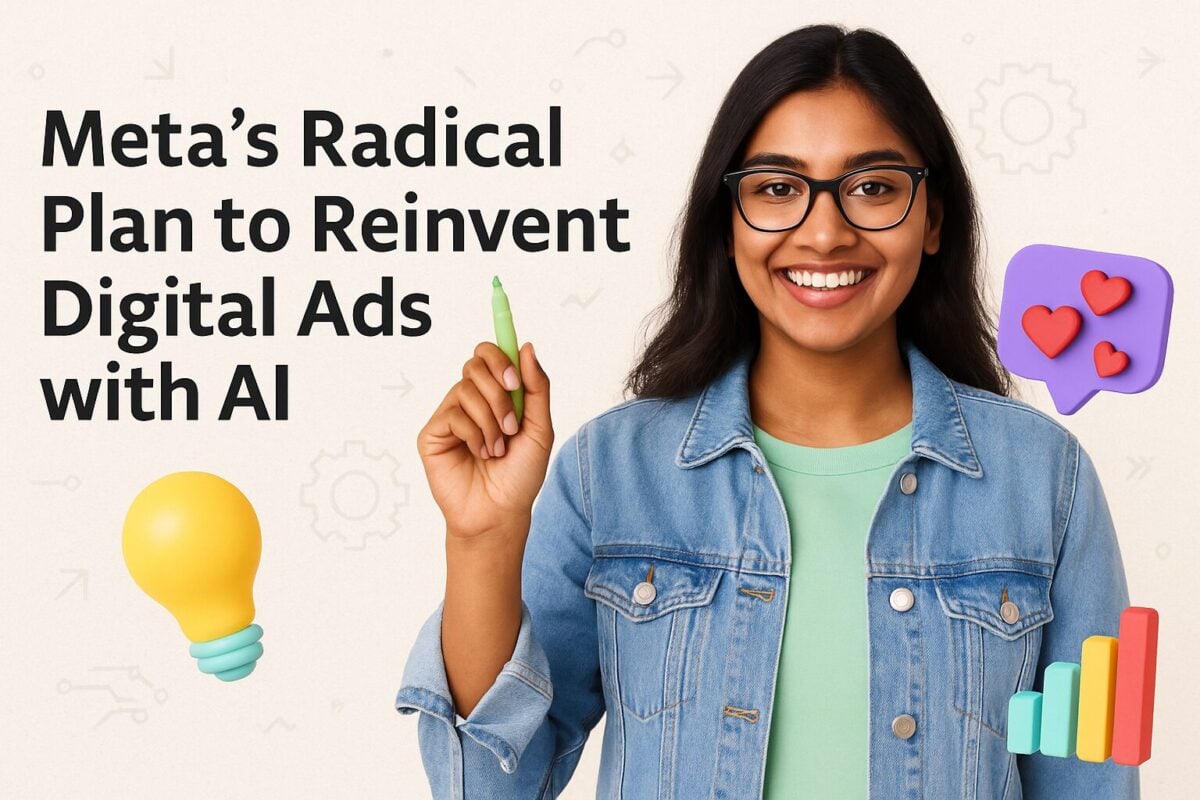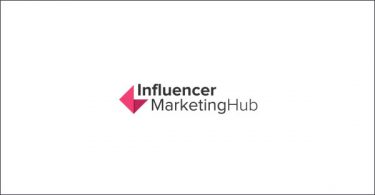In the ever-evolving world of marketing, the emergence of AI has caused a seismic shift that has transformed the industry beyond recognition. This groundbreaking technology has shattered previously insurmountable barriers and opened up a world of possibilities that were once considered out of reach. In recent years, AI marketing has evolved from a mere theoretical concept to a fully established industry, complete with a myriad of players offering state-of-the-art solutions. With the power of AI, marketers can now harness vast quantities of data, automate complex processes, personalize content, and make razor-sharp predictions with unparalleled accuracy.
This has culminated in a more streamlined and productive marketing process, with numerous companies reporting impressive improvements in their key performance indicators. The impact of AI on marketing is simply mind-blowing.
According to a AI Marketing Survey conducted by Influencer Marketing Hub in 2023, more than half of the respondents expressed high hopes for the future of AI marketing, believing that it would drastically enhance their marketing efforts. Moreover, a staggering 71.1% of the respondents had confidence that AI would outperform humans in the industry, further highlighting the incredible potential of AI in the realm of marketing.
However, AI marketing still has its challenges to resolve to reach its full potential. While the benefits of AI marketing are clear, the industry still faces significant challenges. One of the biggest challenges is the lack of skilled talent in the field.
What is AI Marketing?
The intersection of marketing and artificial intelligence (AI) is a fascinating area of study, as it encompasses the utilization of advanced machine learning technologies to fully automate the decision-making process within the marketing industry. Through the utilization of such technologies, marketers can streamline and optimize their targeting approaches, thereby delivering highly-personalized messaging to customers through a variety of channels, resulting in heightened customer experiences, conversions, and increased revenue.
By processing vast quantities of data to gain a better understanding of consumer behaviors, preferences, and trends, marketers are empowered to craft highly-targeted marketing strategies that are customized to their target audience, yielding remarkable returns on their marketing investments. The power of AI is nothing short of impressive, enabling marketers to scale their campaigns, reduce costs, and greatly improve the overall efficiency and effectiveness of their marketing efforts.
Benefits of AI Marketing
Artificial intelligence (AI) has become a powerful tool for marketers to optimize their operations and drive better results. Here are some of the key benefits of integrating AI into marketing operations:
- Automation and Efficiency: AI can help automate and streamline repetitive and time-consuming tasks such as data analysis, lead scoring, and social media posting. This can free up marketers to focus on higher-value activities such as strategy and creativity, while also improving overall efficiency.
- Precision and Personalization: With AI, marketers can gain deep insights into customer behavior and preferences, allowing them to create more personalized campaigns and messaging. AI-powered predictive analytics can also help identify and target the right audiences with the right message at the right time, leading to higher conversion rates and ROI.
- Cost Reduction: By automating certain tasks, AI can help reduce the cost of labor and increase overall productivity. AI can also help optimize ad spend by analyzing data in real-time and adjusting bids and targeting accordingly, resulting in more efficient use of marketing budgets.
- Speed and Agility: AI can help marketers respond quickly to changing market conditions and consumer behaviors. With real-time data analysis and insights, marketers can quickly make adjustments to campaigns and messaging to stay ahead of the competition.
- Creativity and Innovation: While AI can handle many routine tasks, it can also provide new insights and inspiration for creative campaigns. AI-powered tools such as image recognition and natural language processing can help marketers identify new trends and ideas, and generate fresh and innovative content.
Overall, the integration of AI in marketing operations can provide numerous benefits, from increased efficiency and precision to cost reduction and creativity. As the technology continues to evolve, the opportunities for marketers to leverage AI will only grow, and those who embrace it will be well-positioned to drive better results and stay ahead of the curve.
AI Marketing Statistics
According to a report by Gartner, by 2025, 80% of marketing processes will be automated using AI technologies. Fortune Business Insights reports that the global AI market is expected to reach USD 1394.30 billion by 2029, with a CAGR of 20.1%. The widespread adoption of AI in the marketing industry is being driven by its ability to automate processes, personalize customer experiences, and increase return on investment (ROI). AI marketing is transforming the industry by streamlining marketing processes and allowing marketers to focus on strategic and creative tasks.
Among companies, 53% are incorporating AI digital assistants within their IT departments, while 23% use them for administrative support. Chatbots see the most use in sales (41%) and customer service (37%), with marketing (17%) being the third most popular area of application.
- Meanwhile Influencer Marketing Hubs AI Marketing Survey from 2023 indicates that 61.5% of the respondents have used or are using AI in their marketing operations.
- There was a total of 44% of respondents in Influencer Marketing Hub's AI Marketing Survey who explained the fact that the adoption was related to Content Production.
- 41.7% of respondents who have not utilized AI Marketing in their operations yet, claim that the main reason to not adopt the technology is they lack the understanding or knowledge about AI.
AI Marketing Use Cases
In the latest study by Influencer Marketing Hub on the future of AI, 19% of respondents indicated they are planning to spend more than 40% of their marketing budget on AI-powered campaigns.
AI marketing consists of a few major marketing disciplines that are fundamentally changing the way we approach marketing. The most prominent are:
- Content creation: AI-powered tools can help generate content, such as product descriptions, social media posts, and blog articles. These tools use natural language processing and machine learning algorithms to create content that is engaging and relevant to the target audience.
- Ad targeting: AI-powered ad targeting uses machine learning algorithms to identify the most effective target audience for an ad campaign. It analyzes customer data to identify patterns and behaviors that are most likely to result in a sale.
- Marketing automation: Marketing automation tools use AI to automate marketing tasks, such as sending emails, scheduling social media posts, and tracking website visitors. This frees up time for marketers to focus on more strategic tasks, such as campaign planning and analysis.
- Personalization software: AI-powered personalization tools provide marketers with the ability to tailor content to the specific needs of individual customers. This software uses machine learning algorithms to analyze data and create targeted campaigns that are tailored to a customer's interests and behaviors. While personalization software can be effective, it also poses some challenges, such as data privacy concerns.
- Chatbots: Chatbots are a popular form of AI marketing software. They allow companies to provide instant customer support, 24/7. Chatbots can also be programmed to answer frequently asked questions, reducing the load on customer support teams. However, they are not without their limitations, as they can sometimes misinterpret customer queries and provide inadequate responses.
- Predictive analytics: Predictive analytics uses machine learning algorithms to analyze customer data and provide insights that can inform marketing campaigns. Predictive analytics can be used to predict customer behavior, such as which products they are most likely to purchase. However, the accuracy of predictive analytics is dependent on the quality of the data being used.
- Voice search optimization: With the rise of voice assistants like Siri and Alexa, voice search optimization is becoming increasingly important. AI-powered voice search optimization can help companies to create content that is optimized for voice searches, making it easier for customers to find what they are looking for.
Another subcategory of AI marketing software is Customer Relationship Management (CRM) tools, which use machine learning and natural language processing to help businesses better understand and engage with their customers. CRM tools can analyze customer interactions and data to identify trends, predict future behavior, and recommend actions to improve customer engagement and loyalty.
However, some experts caution that AI-powered CRM tools can have limitations, particularly when it comes to predicting customer behavior. The challenge with predictive analytics is that there is no such thing as 100% accuracy and predicting certain scenarios with 80% accuracy can often be categorized as a success, according to Michael Wu, Chief AI Strategist at PROS.
Another area of AI marketing software is content creation and optimization, which uses natural language processing and machine learning to generate and optimize content for various marketing channels. One company that is making waves in this space is Persado, whose AI platform uses a combination of linguistics and data science to generate marketing messages that drive engagement and conversions.
This argument for using such AI marketing solutions is supported by the fact that 80% of consumers are more likely to purchase brands that provide them with personalized experiences, which then has a great impact on conversion rates.
AI Market Map 2024
The AI marketing software market is growing rapidly, with the global market expected to reach over $40 billion by 2025, according to a report by MarketsandMarkets. The market is being driven by the increasing demand for personalized and targeted marketing solutions, which can be achieved through the use of AI-powered tools.
According to Influencer Marketing Hub’s AI Marketing Survey, a staggering 31,9% of the respondents claim they have used or are using the Content Marketing AI tool Jasper.ai, while 21.7% use ChatGPT.
Overall, the AI marketing software market is diverse and growing, with many niches and sub-specialties emerging as the technology continues to develop and mature. As the industry continues to evolve, it presents many opportunities for businesses and individuals interested in leveraging AI for marketing and advertising purposes.
AI Marketing will disrupt the Influencer marketing industry
AI is revolutionizing the influencer marketing industry by enabling marketers to connect with the right influencers and audiences with unprecedented accuracy and efficiency. Here are a few ways in which AI is disrupting the influencer marketing industry:
- Improved audience targeting: AI-powered tools are helping marketers to analyze consumer data and understand audience demographics, interests, and behavior patterns to better target influencers and ensure they are reaching the right audience.
- Finding the right influencers: With the sheer number of influencers available, finding the right ones can be a daunting task. AI-powered tools make it easier for marketers to identify and select the most relevant influencers based on audience data, content performance, and other metrics.
- Automated campaign optimization: By analyzing data on campaign performance in real-time, AI algorithms can optimize influencer marketing campaigns automatically. This allows marketers to continuously improve the campaign by adjusting strategy and tactics based on performance, leading to better results and higher ROI.
- Fake follower detection: Fake followers have become a major problem in the influencer marketing industry, and AI-powered tools can help detect fraudulent activity and identify influencers with fake followers.
According to a report by Influencer Marketing Hub, the global influencer marketing industry is expected to reach $24 billion in 2024, with AI playing a significant role in its growth. As such, it is important for marketers to stay up to date with the latest AI-powered tools and trends in order to stay competitive in the ever-evolving influencer marketing landscape.
Implementations of AI Marketing
Implementing AI in marketing operations can seem daunting, but there are some key steps that brands and companies can take to get started. To use AI marketing effectively, companies should:
- Identify the right areas to apply AI: Before implementing AI, companies should identify the areas where it can be most effective. This can be achieved through analyzing customer data to identify patterns and trends.
- Build a dedicated team: Building a dedicated AI team can help to ensure that the implementation process runs smoothly. This team should be composed of data scientists, engineers, and marketers who have experience with AI.
- Start small: Companies should start by implementing AI in small, controlled experiments before rolling it out on a larger scale. This will help to identify any potential issues before they become too large to manage.
As AI is still in its early stages of adoption, many organizations struggle with the complexity of integrating AI into their existing marketing operations. Additionally, the issue of data privacy and ethics in AI is another challenge that needs to be addressed. As AI is becoming more involved in customer data analysis, it is crucial to ensure that the customer's privacy is protected.
Conclusion
Overall, the AI marketing software industry is rapidly evolving, with new tools and capabilities emerging all the time. While there are still challenges to be overcome, including ethical concerns around data privacy and algorithmic bias, the potential benefits of AI marketing are enormous. By leveraging the power of machine learning and natural language processing, businesses can gain deeper insights into customer behavior, generate more effective marketing messages, and ultimately drive better business results.
In conclusion, AI marketing software is a rapidly evolving and disruptive force in the marketing industry. From predictive analytics and chatbots to content creation and optimization, AI is changing the way that businesses interact with customers and drive business results. While there are challenges to overcome, the potential benefits of AI marketing are enormous, and businesses that embrace these tools will be better positioned to thrive in an increasingly competitive digital landscape.
Frequently Asked Questions
How is AI used in marketing?
AI is used in marketing in various ways, such as:
- Predictive analytics and customer segmentation: AI algorithms can analyze vast amounts of customer data and provide insights into customer behavior, preferences, and trends. This enables marketers to create more personalized campaigns and target specific audiences with greater accuracy.
- Chatbots and virtual assistants: AI-powered chatbots and virtual assistants can provide 24/7 customer support, answer customer queries, and help customers navigate websites and apps.
- Content creation and curation: AI algorithms can generate content, such as product descriptions, headlines, and social media posts, and curate content based on user preferences and interests.
- Image and video analysis: AI algorithms can analyze images and videos to identify objects, faces, and emotions. This can be used for personalized product recommendations, content creation, and ad targeting.
Is investing in AI marketing good?
Investing in AI marketing can be beneficial for businesses, as it can help them to better understand their customers, create more personalized campaigns, and improve the overall customer experience. However, it is important to carefully evaluate the potential benefits and costs of AI marketing and ensure that it aligns with the business's overall marketing strategy.
Who is the owner of AI marketing?
AI marketing is not owned by any one person or company, but rather, it is a rapidly evolving field with numerous startups, established tech companies, and marketing agencies offering AI-powered marketing tools and services.
How much do you make on AI marketing?
There is no fixed salary for AI marketing, as it varies depending on the job role, industry, and location. However, according to Glassdoor, the average salary for a Marketing Manager with AI skills in the United States is around $100,000 per year.
According to Glassdoor, some of the highest paying AI jobs include:
- Machine Learning Engineer: Average salary of $114,000 per year
- Data Scientist: Average salary of $113,000 per year
- AI Architect: Average salary of $105,000 per year
- Robotics Engineer: Average salary of $99,000 per year
Is a career in AI worth it?
A career in AI can be worth it, as AI is an emerging field with a growing demand for skilled professionals. AI offers numerous career opportunities, such as data scientists, machine learning engineers, and AI researchers. However, it is important to note that a career in AI requires a strong background in computer science, statistics, and mathematics, as well as ongoing learning and development.







